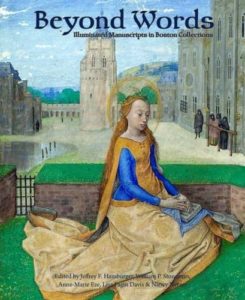38th Annual Medieval and Renaissance Forum
Keene State College
Keene, NH, USA
Friday and Saturday April 21-22, 2017
Call for Papers and Sessions
“Culture and Violence”
Keynote speaker: Professor Richard W. Kaeuper, University of Rochester “From Geoffroi de Charny to Louis de la Tremoille: The Autumn of Chivalry”
We are delighted to announce that the 38th Medieval and Renaissance Forum will take place on April 21 and 22, 2017 at Keene State College in Keene, New Hampshire. This year’s keynote speaker is Richard W. Kaeuper, Professor of History at the University of Rochester.
Professor Kaeuper’s research has focused on medieval English and Continental history, justice and public order, and especially on the development of chivalry, with an emphasis on its nexus with violence and religion. Professor Kaeuper’s research bursts traditional disciplinary boundaries, combining institutional and legal history with a strong emphasis on cultural, especially literary and social developments. His most recent book, Medieval Chivalry, appeared this past spring in the distinguished Cambridge Medieval Textbooks series. Among his previous publications are Holy Warriors: The Religious Ideology of Chivalry (UPenn, 2009), Chivalry and Violence in Medieval Europe (Oxford, 1999), and an extensive introduction to Elspeth Kennedy’s translation of Geoffroi de Charny’s Book of Chivalry (UPenn, 1996; 2nd edition 2005).
We welcome abstracts (one page or less) or panel proposals that discuss the nature and cultural and religious context of violence in the Middle Ages and the Early Modern period.
Papers, however, need not be confined to this theme but may cover other aspects of medieval and Renaissance life, literature, languages, art, philosophy, theology, history, and music.
Students, faculty, and independent scholars are welcome. Please indicate your status (undergraduate, graduate, or faculty), affiliation (if relevant), and full contact information on your proposal.
Undergraduate sessions are welcome but require faculty sponsorship.
Please submit abstracts, audio/visual needs, and full contact information to Dr. Robert G. Sullivan, Assistant Forum Director at sullivan@german.umass.edu.
Abstract deadline: January 15, 2017
Presenters and early registration: March 15, 2017
We look forward to greeting returning and first-time participants to Keene in April!
 Beyond Words at Houghton Library
Beyond Words at Houghton Library


